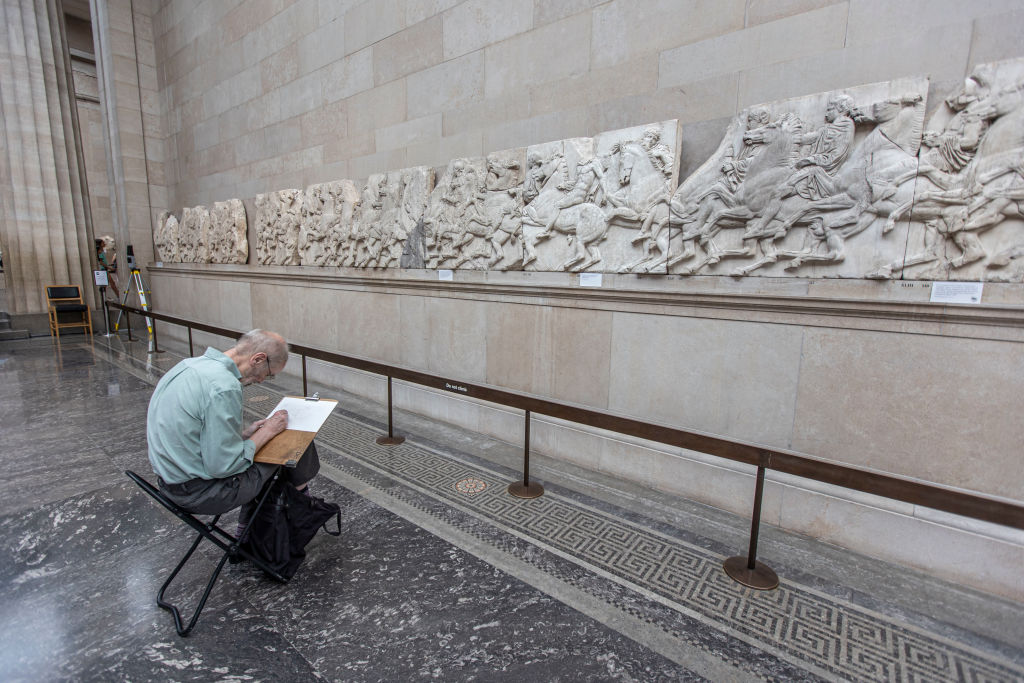
The UK government has today warned the British Museum in London that it is legally forbidden to break up its collection, according to the Agence France Presse. The news comes just days after it was reported that the chair of the British Museum, George Osborne, has been taking part in secret talks with the Greek prime minister over the possible return of the Parthenon marbles.
The Greek newspaper Ta Nea published an article on Saturday saying that these meetings have been taking place in London since 2021 and that an agreement over their return is now apparently in “an advanced stage.”
Greece’s minister of state, Giorgos Gerapetritis, has confirmed to the Guardian that discussions have been taking place. However, “right now, they are preliminary talks,” he said, seeming to contradict the idea that they were reaching the point of conclusion. “Although there is a common understanding, a lot of details have yet to be worked out.”
George Osborne speaks at the British Museum on February 2, 2010 in London. Photo by Peter Macdiarmid/Getty Images.
A spokesperson for the UK prime minister, Rishi Sunak, told reporters today that the museum’s trustees are free to enter discussion with anyone they want, but they are prevented from selling or giving away any objects from its collection by the 1963 British Museum Act (except for under a few limited conditions).
The British Museum has confirmed in a statement that the institution has no intention of operating outside of the law and would not “dismantle our great collection as it tells a unique story of our common humanity.”
The ancient sculptures were removed from the frieze decorating the Parthenon temple in Athens by the British aristocrat Lord Elgin, who originally intended to bring them to this Scottish estate. In the end, they were bought by the U.K. government for the British Museum in 1816. In recent decades, they have been at the center of a heated debate, with Greece calling for their return and constructing a special gallery at the Acropolis Museum intended to house the works. Those held at the British Museum are currently represented in Athens by plaster copies.
Now it looks like institutional leaders may be working to find a compromise. “We are seeking new positive, long-term partnerships with countries and communities around the world, and that of course includes Greece,” the British Museum said in its statement, echoing a previous call made in July by the museum’s deputy director Johnathan Williams for a new Parthenon Partnership to be agreed with Greece.
“I firmly believe there is space for a really dynamic and positive conversation within which new ways of working together can be found,” Williams told the Sunday Times Culture magazine. “There are many wonderful things we’d be delighted to borrow and lend,” he hinted. “It is what we do.”
Last week, the Greek prime minister, Kryiakos Mitsotakis, told an audience at the London School of Economics that he believed progress was being made towards a “win-win solution” for Greece and the British Museum. “I do sense a momentum,” he said.